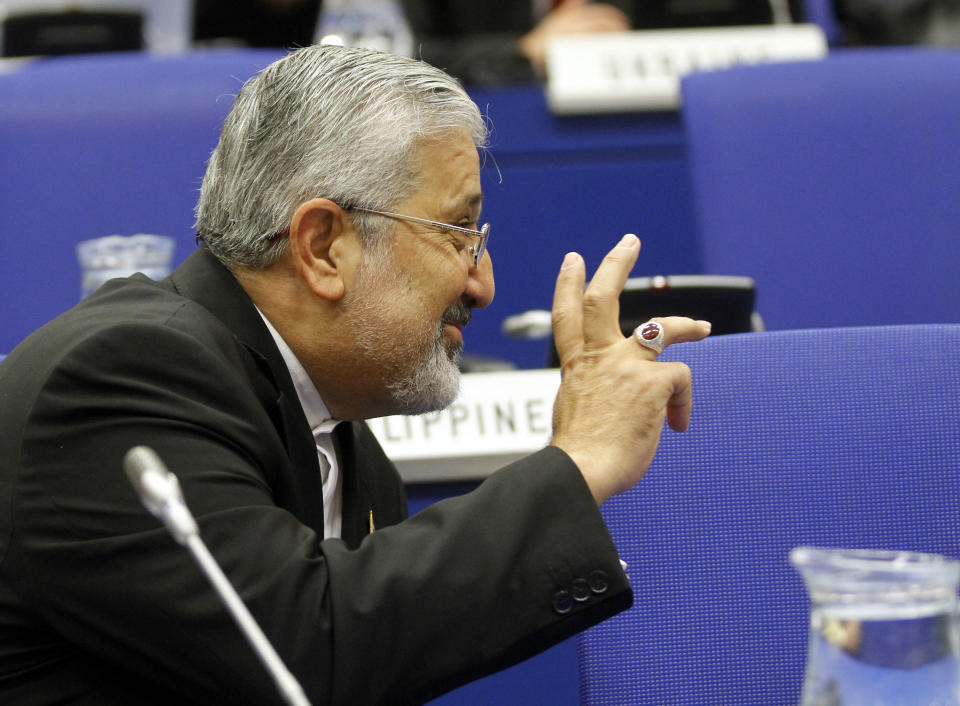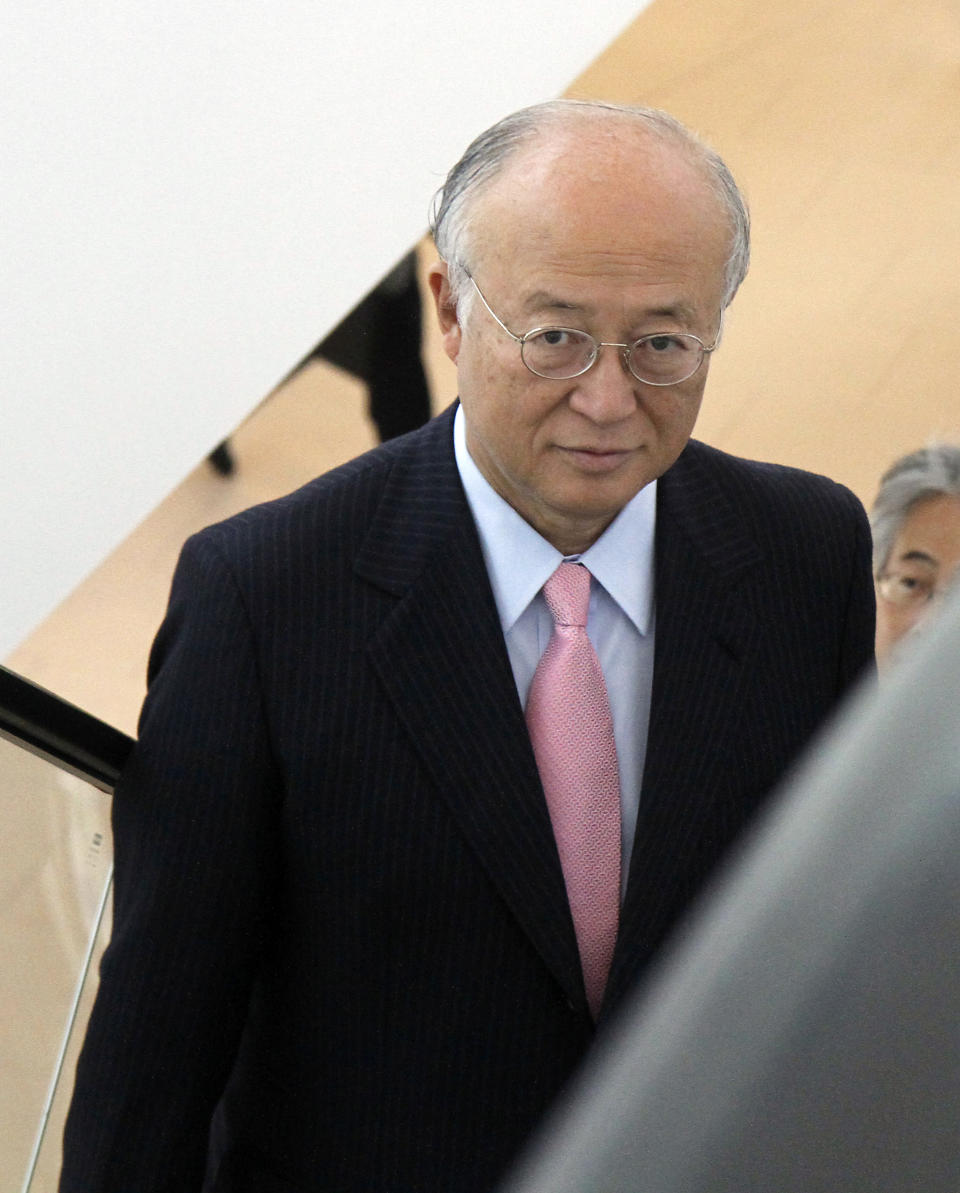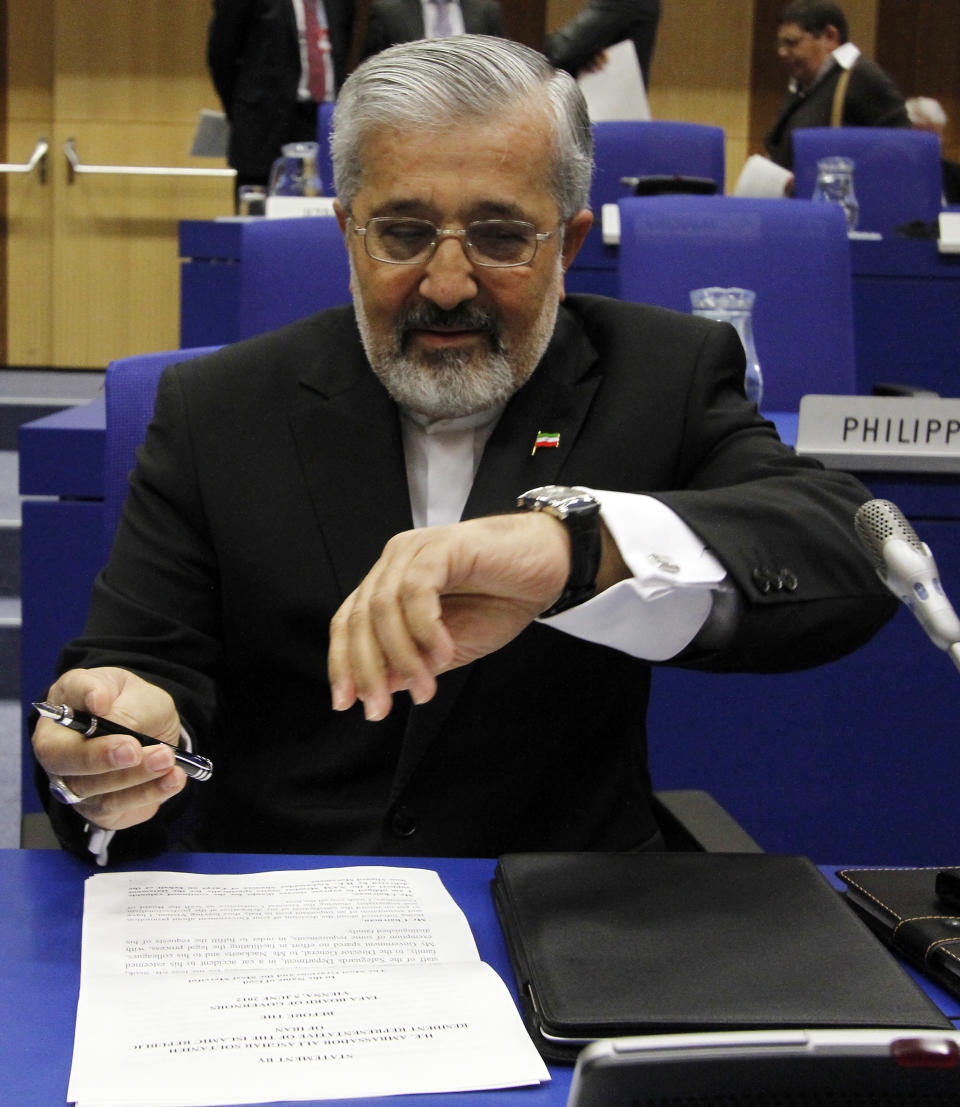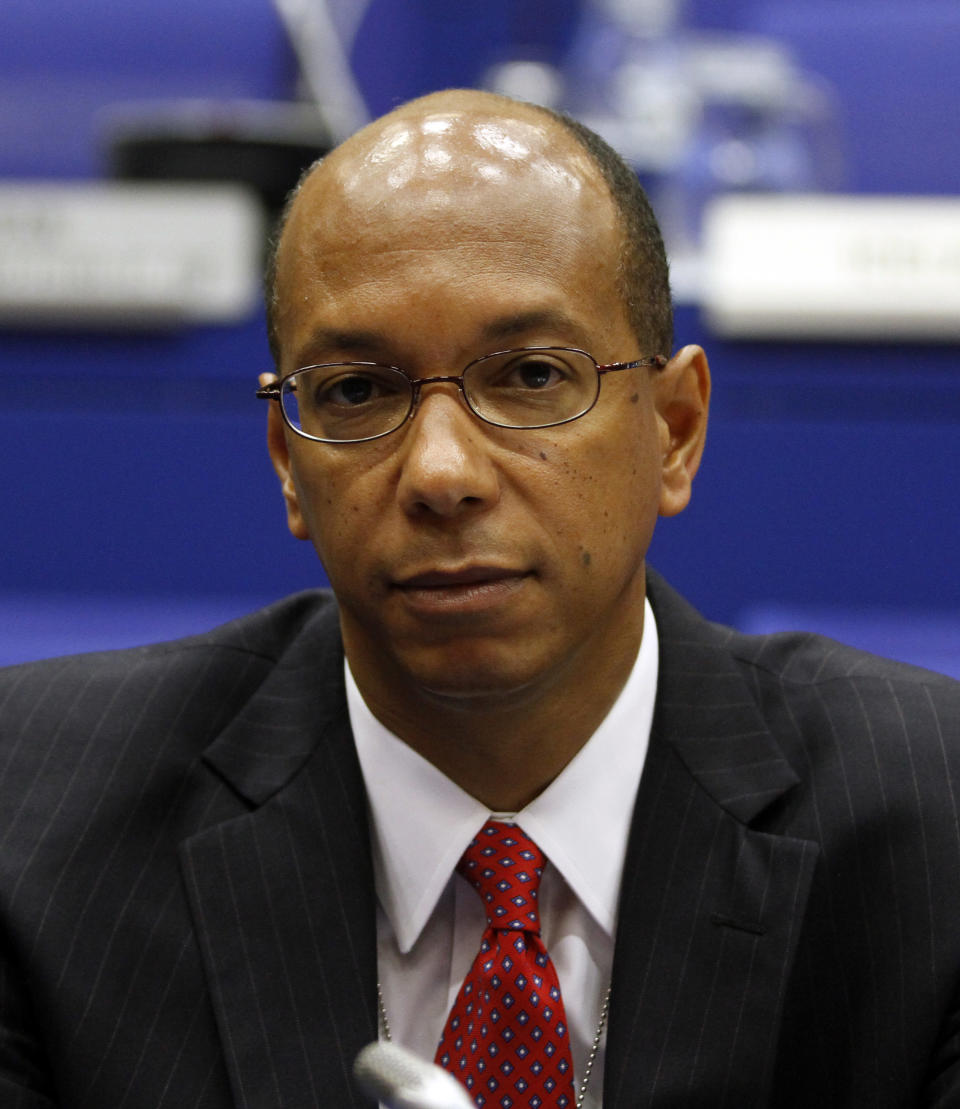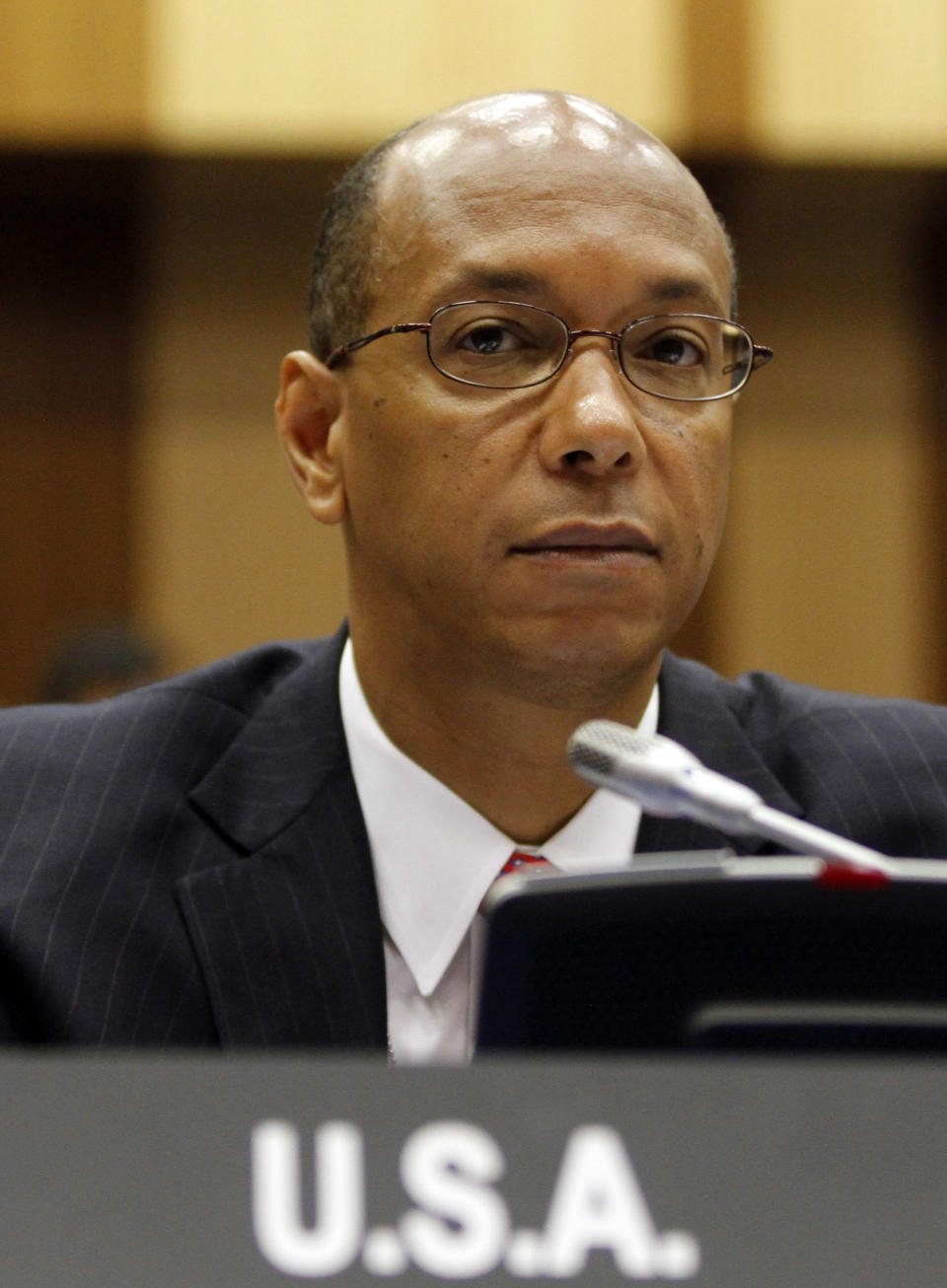Israel accuses Iran of nuclear deception
VIENNA (AP) — Renewing its criticism of Iran's atomic agenda, Israel's delegate to the International Atomic Energy Agency accused Tehran on Wednesday of working secretly on nuclear weapons while pretending it does not want such arms, under a strategy of "deception, defiance and concealment."
Iran dismisses IAEA and international suspicions that it may have worked covertly on nuclear weapons and insists it has no interest in possessing such arms, saying its disputed uranium enrichment program is geared only toward generating nuclear fuel.
Ali Asghar Soltanieh, Iran's chief IAEA delegate, said as much again Wednesday without responding directly to Israeli delegate Ehud Azoulay, telling the agency's 35-nation board that all allegations to the contrary "are forged and baseless and our nuclear activities are exclusively for peaceful purposes."
But critics note that it has blocked the restart of an IAEA probe into its alleged secret weapons work for nearly five years, as well as refusing foreign offers of reactor fuel. It has instead expanded enrichment, and because the process can make both such fuel and the fissile material used to arm nuclear weapons, international concerns have grown about Tehran's nuclear ambitions.
Israel is particularly critical, noting that Iranian President Mahmoud Ahmadinejad has called for the eradication of Israel. It and the United States have not ruled out military strikes against the Islamic Republic if diplomacy fails to curb a nuclear program they see as a cover for making weapons. While Wednesday's comments from Israel were not new, they mirrored the high tensions that could result in such an attack on Iran's nuclear facilities
Accusing Iran of "proceeding in (an) accelerated path towards acquiring nuclear weapons capability," Azoulay told the IAEA meeting that the Islamic Republic was employing a strategy of "deception, defiance and concealment," to gain time for developing such weapons.
In separate comments to The Associated Press he alluded to the military option, warning that "time is running out ... for a political solution."
Azoulay spoke ahead of two separate efforts to persuade Iran to reduce concerns about its nuclear ambitions.
Later this month in Moscow, six world powers will attempt to convince Tehran to stop enriching to higher levels that could be quickly turned into weapons-grade uranium at its Fordo facility, which is dug into a mountain and fortified against aerial attack. But Soltanieh warned against high expectations.
"Iran will never ever suspend its enrichment activities," he told reporters outside the IAEA meeting.
Before the Moscow talks, IAEA officials plan to meet with Soltanieh in Vienna on Friday in attempts to prod Iran into agreeing to reopen the agency's probe into the alleged secret weapons work.
That IAEA probe remains stalled three weeks after agency chief Yukiya Amano came back from Tehran saying that Iranian permission to relaunch it was near. Focusing on the continued stalemate, Azoluay said it shows that "all efforts to engage Iran were fruitless."
He specifically cited Tehran's refusal to give IAEA experts access to a site the agency believes was used to test high explosives suited for setting off a nuclear charge, saying the Islamic Republic is doing "its utmost to ... obstruct any investigation."
The IAEA recently showed board members satellite photos of that site, part of the Parchin military base southeast of Tehran, and diplomats at that closed meeting said the images showed evidence of a cleanup, including water pouring from a building, earth being moved and the demolition of several buildings.
Amano, the IAEA chief, confirmed the photos showed such activities Monday. Soltanieh, the Iranian delegate to the IAEA, suggested the agency was overstepping its mandate, telling reporters that his country "will not permit the agency to be turned into an international intelligence services organization."


